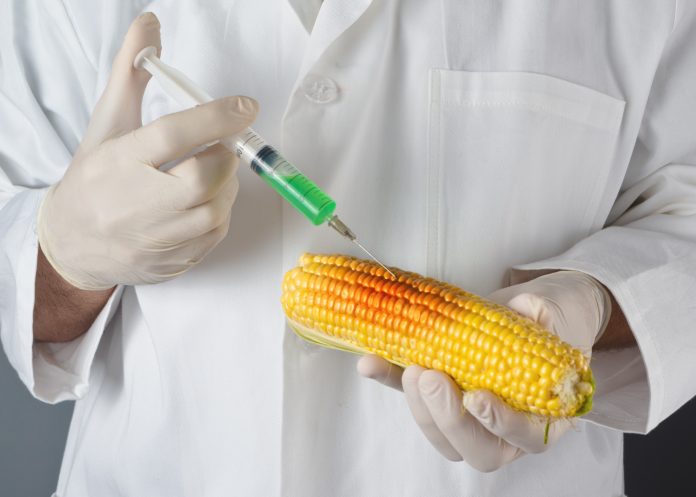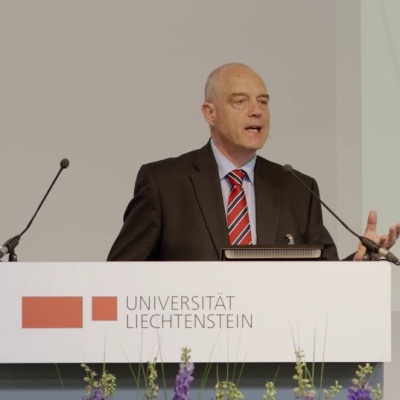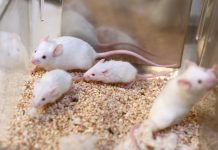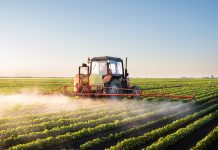Graham Brookes, Agricultural Economist with PG Economics, UK, charts how the development and deployment of COVID-19 vaccines, derived using techniques of genetic modification, highlight ideological inconsistency and hypocrisy
The rapid approval and deployment of coronavirus vaccines in European countries, especially in the UK, is welcome news. These mRNA and viral vector vaccines are derived using techniques of genetic modification (GM). For example, the AstraZeneca vaccine uses a harmless virus that has been genetically modified to include coronavirus genes, which when injected into human cells makes coronavirus proteins that stimulate the immune system to fight any future coronavirus infections.
Politicians across Europe have queued up to praise these medical breakthroughs and to reassure citizens of the robust, science-based regulatory approval systems that are in place to ensure their safety as the vaccines are fast-tracked through the approval process and into deployment.
However, isn’t this stance inconsistent and hypocritical? These vaccines use the very same techniques of genetic modification (GM) or gene editing (GE) that most European politicians have spent the last 25 years preventing their citizens and farmers from having access to for the production and consumption of food, feed and fibre crops and which so-called environmental advocacy groups have opposed unequivocally.
If these politicians and advocacy groups were being consistent with their past behaviour, they would be vigorously campaigning against these vaccines’ approval and publicly stating that they personally will not be using them.
Robust regulations
Robust science-based regulatory frameworks for GMOs have been in place since the 1990s and over 4,300 such science-based regulatory assessments have been conducted in 70 countries by 2019 (ISAAA,2019).
These have facilitated the widespread adoption of GM crops, largely outside Europe.
To date, there has been no credible evidence of negative impact on human health, there is a broad consensus amongst the vast majority of scientists and regulators that these products are safe to consume and there is now a substantial body of evidence that GM crop technology has made important contributions. These include improving global food security, reducing the environmental footprint of agriculture and helping to cut global greenhouse gas emissions (e.g., Brookes and Barfoot, 2020).
Access denied in Europe
Despite all this, most European politicians have continued to apply a non-science and non-evidence-based approach to regulating these technologies, largely denying European farmers and citizens access to the benefits referred to above. As a result, the current status of GM/GE crop regulation and use in Europe is as follows:
• Only one GM crop trait, an insect resistant maize is grown, only in Spain and Portugal.
• EU Directive 2015/412 allows Member States to ban GM cultivation for non-scientific reasons. Eighteen Member States have used this ‘opt out’.
• Approvals for the importation and use of GM crops and their derivatives are often subject to long delays, often disrupting supply chains of raw materials to European farmers and food/feed users. The average completion time for a GM crop regulatory decision in the EU is five years (Smart et al, 2016) and a group of 15 EU Member States have a long track record of voting against or abstaining from voting for such approvals. However, all of these Member States import and use these same GM-derived commodities that their politicians have repeatedly voted to deny them access to.
• The European GMO regulatory approval system has been acknowledged as failing to operate as intended (European Commission, 2015) and has been ruled to be mal-administered (European Ombudsman, 2016).
• Lastly, following a Court of Justice of the European Union (CJEU) 2018 ruling, any innovation containing or derived from the use of GE techniques is ‘to be considered the same as a GMO’ and subject to the same dysfunctional and mal-administered regulatory approval system. This contrasts with several other countries, including the U.S., Brazil, Argentina and Japan, which have decided that some (not all, as in the EU) products developed using GE techniques do not merit being subject to GMO-style regulatory approval rules.
Lessons from COVID
Moving forward, if Europe is to be consistent in the way scientific developments in medicine and agriculture are regulated, the main choices are to:
• Apply the same rigorous and solely science-based approval approach currently being applied to COVID-19 vaccines to the regulation of crop and livestock innovations derived from the same technologies
Or
• Apply the current non-science and non-evidence-based approval approach applied to crop innovations that use GM or GE techniques to COVID-19 vaccines. If this approach had been instituted for COVID vaccines, European citizens would be waiting, at best, a further five years before getting access to the vaccines or possibly never having access to them at all. This would have been an interesting outcome for European politicians to now be explaining to their citizens.
Of course, European countries may carry on with the inconsistent and hypocritical approach of applying a science and evidence-based approach to COVID-19 vaccines and a non-science and non-evidence-based approach to crop genetics.
Let’s hope, though, that European politicians take the opportunity that the tremendous development of GM/GE derived COVID-19 vaccines offers to re-set, re-boot and revise the regulatory approval systems for these technologies so that we can all benefit from their potential in all sectors, including agriculture and food production.
References
Court of Justice of the European Union (CJEU) 2018. Ruling on case C- 528/16 of 25 July 2018
European Commission (2015). Reviewing the decision-making process for GMOs’, Com 2015, 176 final
Contributor Profile
Editor's Recommended Articles
-
Must Read >> Gene-edited crops are not GMOs 2.0
-
Must Read >> Farming sustainably with genetically modified crops















